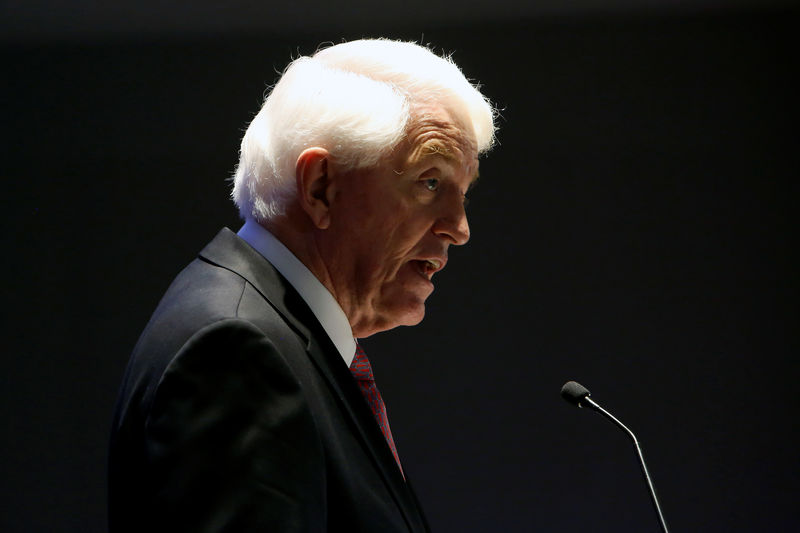By Ana Isabel Martinez and David Lawder
MEXICO CITY/WASHINGTON (Reuters) - The most powerful U.S. business lobby accused the Trump administration of making "poison pill proposals" to sabotage NAFTA on Tuesday, as Mexico's foreign minister said the demise of the regional trade pact would hurt bilateral cooperation.
The process of renegotiating the 23-year-old North American Free Trade Agreement has turned increasingly acrimonious. Mexico accuses U.S. President Donald Trump of spoiling for a "protectionist war" with proposals aimed at balancing trade.
Mexican Foreign Minister Luis Videgaray said on Tuesday that an end to NAFTA would mark a breaking point in U.S.-Mexican relations and affect bilateral cooperation in other areas.
Mexico is a key partner of the United States in fighting drug trafficking and stemming illegal immigration across the U.S. southern border.
Videgaray spoke after Trump warned again that he would like to scrap the treaty that created one of the world's biggest trade blocs.
"I happen to think that NAFTA will have to be terminated if we're going to make it good," Trump said in an interview with Forbes published on Tuesday.
The Mexican peso weakened for the fifth straight session on Tuesday amid the increased tensions, and hit its weakest level against the dollar since early June.
A fourth round of negotiations starting in Washington on Wednesday to modernize NAFTA has been prolonged by two days to Oct. 17, two sources in Mexico said.
Trump's hardline position did not appear to have wide support ahead of the talks, with many U.S. businesses and farmers lining up to back the existing agreement.
Speaking in Mexico City, Thomas Donohue, the U.S. Chamber of Commerce's president and chief executive, listed several U.S. proposals that he said would undermine $1 trillion in annual trilateral trade, including a "sunset clause" to force regular negotiations.
His comments marked the second broadside the chamber has launched against the Trump administration's stance on NAFTA in less than a week. It has argued repeatedly that the trade pact is critical to U.S. industries such as agriculture and manufacturing.
"There are several poison pill proposals still on the table that could doom the entire deal," Donohue said at an event hosted by the American Chamber of Commerce of Mexico, where he said the "existential threat" to NAFTA threatened regional security.
U.S. officials have suggested incorporating a sunset clause in NAFTA that would kill it unless it was renegotiated every five years. The officials have also suggested eliminating a key dispute resolution mechanism, much to the dismay of Canada.
Donohue singled out plans to make automakers source more parts in North America, as well as proposed changes to the dispute resolution mechanism as obstacles to NAFTA's renewal. He also cited plans to limit Canadian and Mexican access to U.S. government procurement rules.
Automakers in Mexico say excessive content requirements could do serious damage to the industry's competitiveness.
"The impact would be the opposite of what’s intended: U.S. industry would source more inputs from Asia and less from the U.S. That’s right — this proposal would actually send business overseas," Donohue said.
He also slammed the emphasis placed by the White House on reducing the U.S. trade deficit.
"It's the wrong focus and is impossible to achieve without crippling the economy," he said.
The chamber sent a letter to the White House on Tuesday signed by more than 300 local U.S. business groups in support of NAFTA.
The United States, Mexico and Canada began renegotiating NAFTA this summer.
Trump has repeatedly threatened to withdraw if he does not win concessions to reduce a U.S. trade deficit of around $64 billion with Mexico.
"The president has strongly criticized this agreement for years. We realize that as bad as it has been for us, it has been great for Mexico and Canada. Naturally they will defend this lopsided accord," U.S. trade Representative Robert Lighthizer said on Tuesday.

"To rebalance will require substantial change and not mere tweaking. The president has vowed to bring jobs and investment back to America. We will do no less," he added.